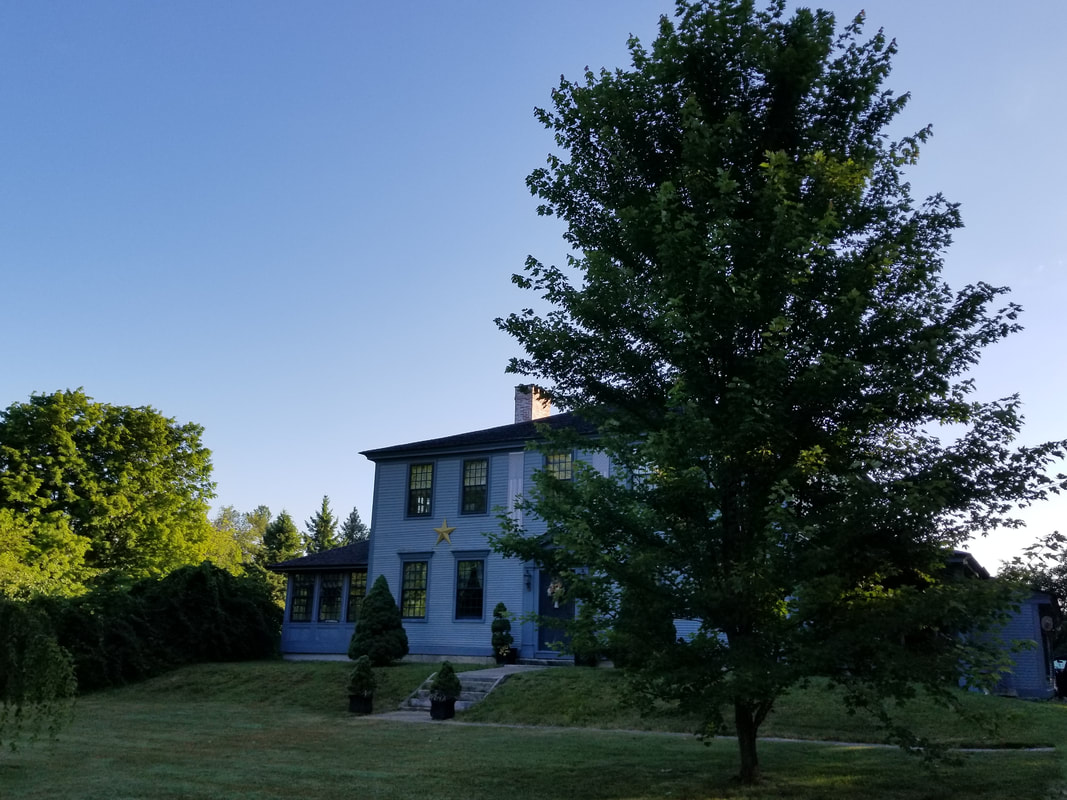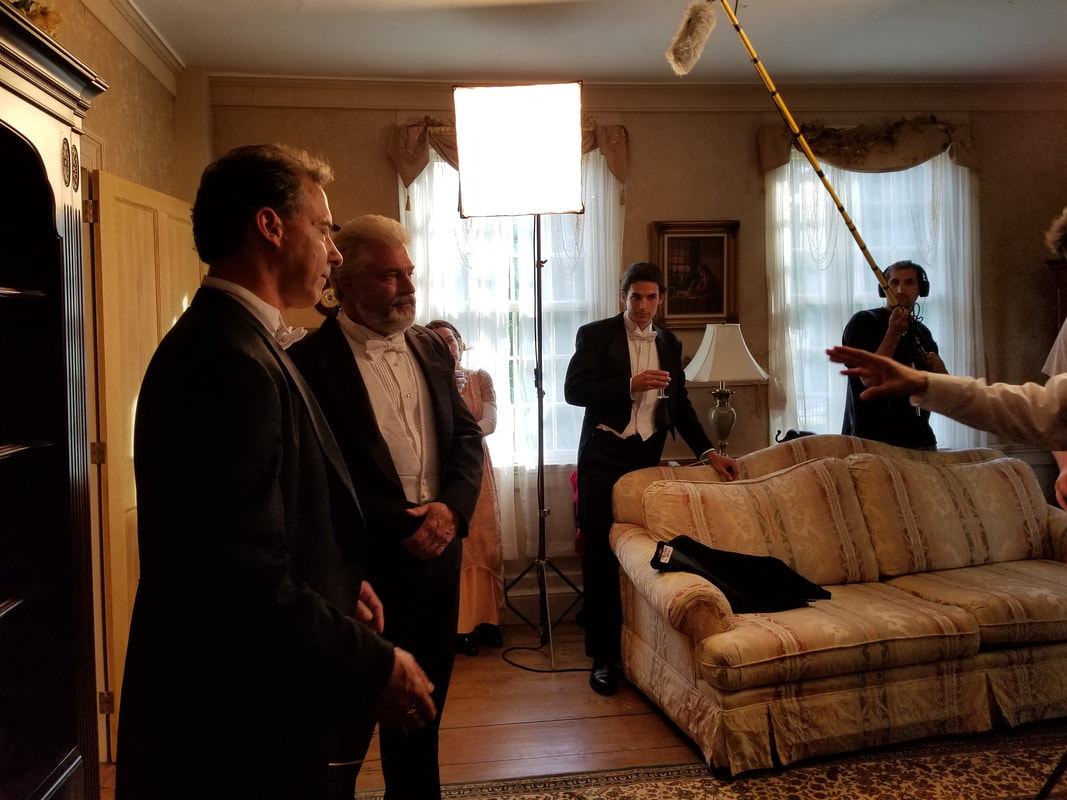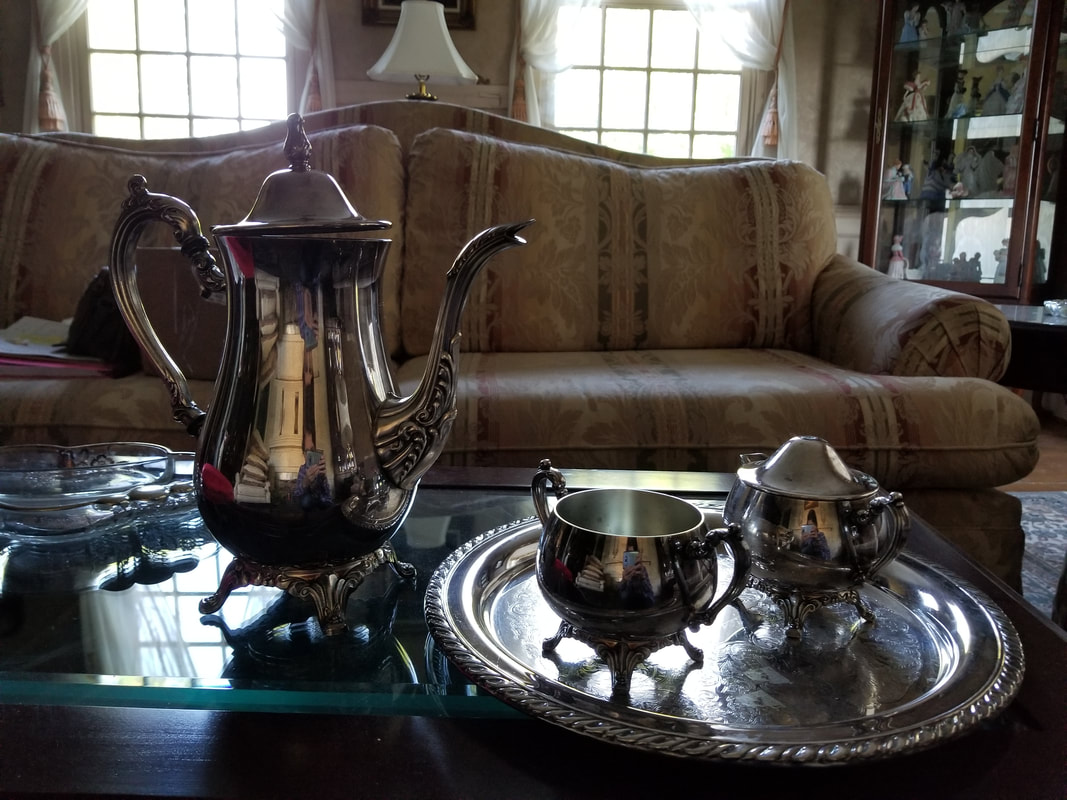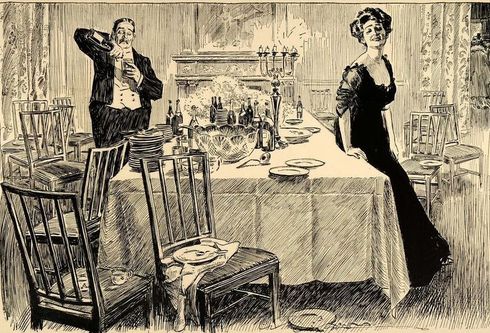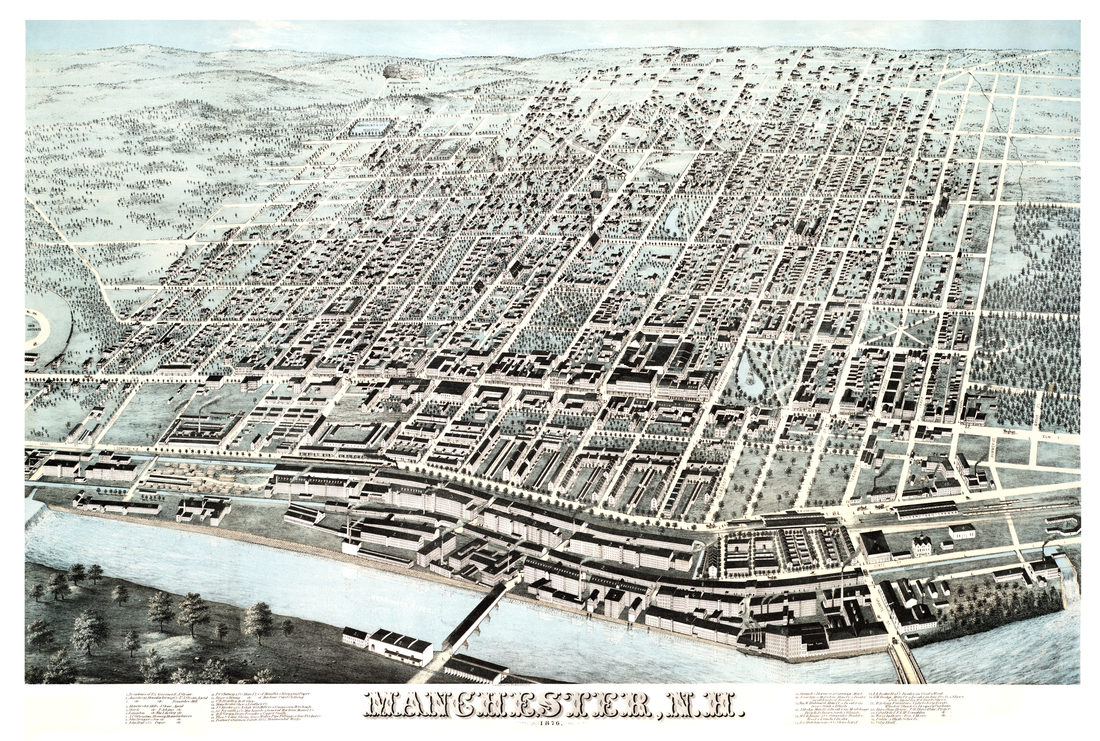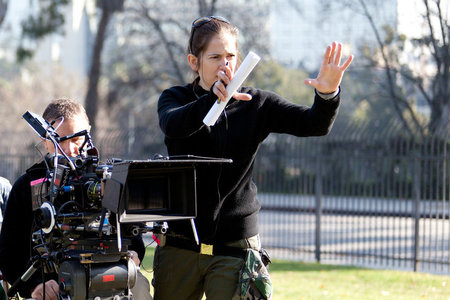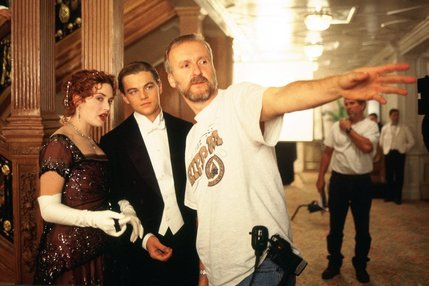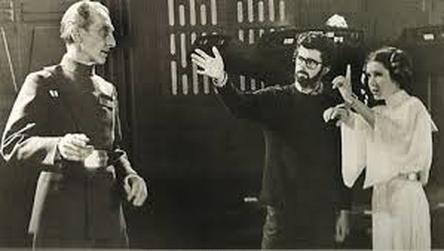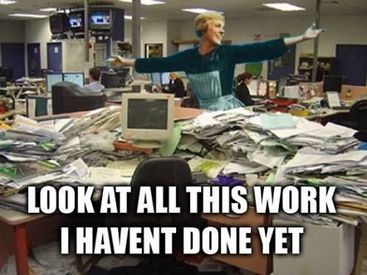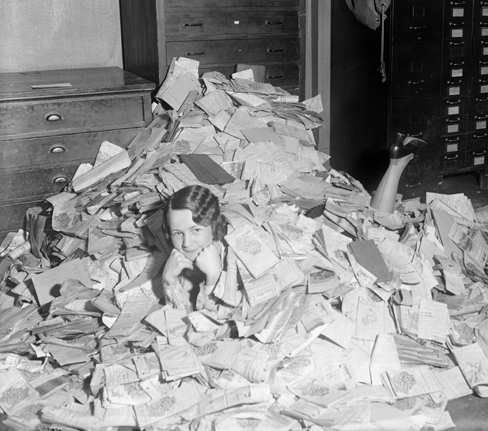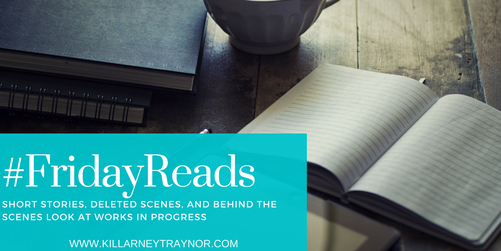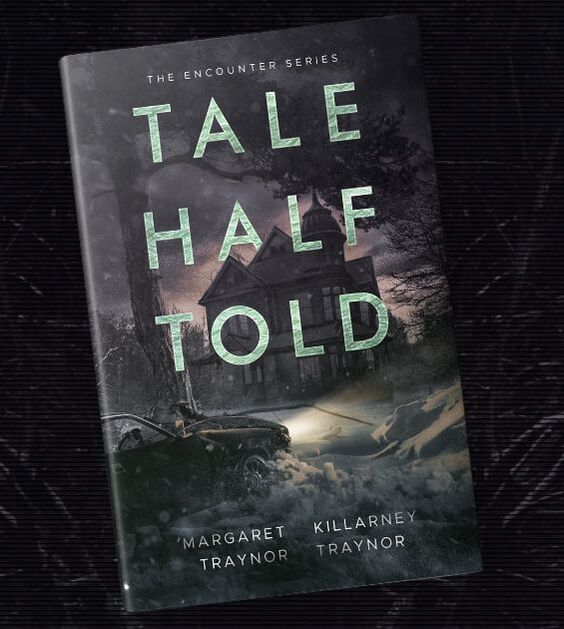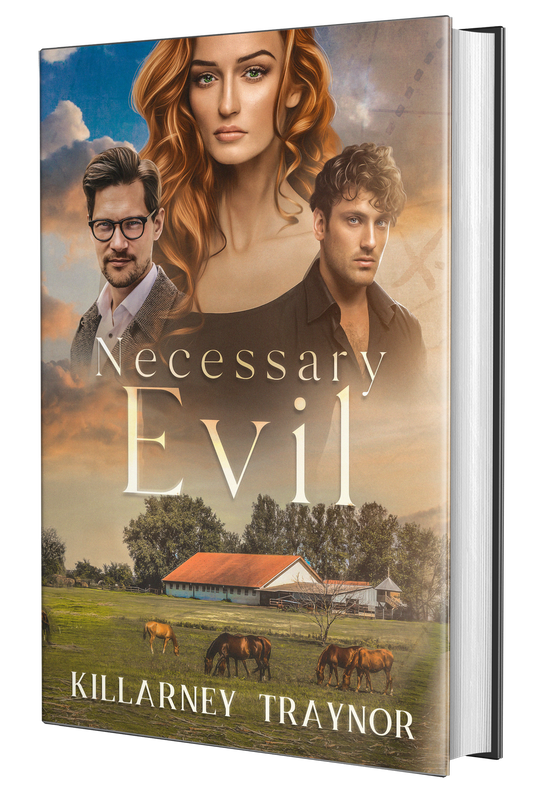|
Bridie Vail agreed to allow me to use her in this short introduction. I've always loved reading about the Revolutionary War and since Miss Vail is the person I know who most closely reminds me of Maureen O'Hara, it seemed natural to set her story here. My apologies for any historical inaccuracies! Enjoy and happy Fourth of the July! 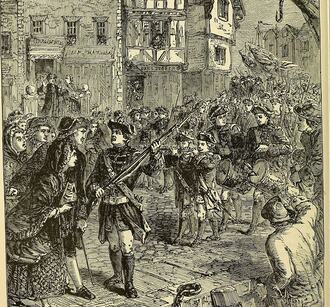 The occupation of Boston and the closing of the port had been done in a gentlemanly and efficient manner. The locals, clearly resentful, were for the moment keeping their distance. The other officers in Townhend's circle were hopeful that this would be an easy assignment, with nothing much more to do than drill the troops, collect their pay, and enjoy themselves. But though initially events seemed to confirm their optimistic outlook, Captain Townshend couldn’t shake the feeling that things were not as secure and calm as they appeared. Perhaps it was the weather, which was foggy and cold. Perhaps it was the miserable city of Boston itself, with its filthy crooked streets, dreadful little houses, and lack of anything even remotely resembling culture, cultivated minds, or art. Perhaps it was in the very silence of the inhabitants, who appeared watchful and calculating, even for disgruntled, ungrateful colonials. It might have been any one of those factors. But the truth of the matter was, it was something else entirely that kept him worrying. The Quartering Act was, of all the acts, perhaps the one most keenly resented by the colonists and no one could be more resentful than the Vails of Blank Street, where Captain Townshend had taken up his residence. Townshend prided himself of his good manners and clean living, on making himself the least possible bother to his reluctant landlords, but this made not one whit of difference to the Vails. They were Irish, of course. (It seemed that the entire nation consisted entirely of either disgruntled Irishmen or self-important Puritans, neither of which were particularly endearing.) The husband had worked on the sea, the wife was seamstress, and there were two sons who’d left before the occupation. The husband and the wife were quiet and Townshend could have left them well enough alone. But it was their daughter, a young, slender woman with stick straight hair and a proud carriage that would have cowed the Duchess of Marlborough, that really got under his skin. From a brief glance, Bridie Vail would not have seemed a rebel. She was generally demur, lady-like, even gentle. But prick her and she bled the colonist’s cause. Townshend had been in the house all of ten minutes before he realized this. He’d been gently but firmly introducing himself to the family, explaining the law and their duties to it and the crown. Mr. and Mrs. Vail had subsided into the resentful silence that he’d come to expect from these unreasonable Bostonians. “We expect that every subject will do his duty, as due his sovereign lord,” he said, finishing the little speech he crafted for all such occasions. It was Bridie who answered. “And I suppose you’ll be wanting meals, too.” He was a little surprised. She’d been silent until now and her voice was as gentle and soft as her appearance. He should have known it was misleading. “Yes,” he said. “That’s generally expected.” “ I see,” she nodded, her arms crossed in front of her pale green dress. “I suppose it does make sense to force the people you’re starving into submission to provide not only a roof over your head, but their own food to fill your stomachs. Gets the job done quicker, you might say.”
0 Comments
By Monica Hess
On a routine delivery, a client asks Hanneke for help. Expecting to hear that Mrs. Janssen wants meat or kerosene, Hanneke is shocked by the older woman's frantic plea to find a person--a Jewish teenager Mrs. Janssen had been hiding, who has vanished without a trace from a secret room. Hanneke initially wants nothing to do with such dangerous work, but is ultimately drawn into a web of mysteries and stunning revelations that lead her into the heart of the resistance, open her eyes to the horrors of the Nazi war machine, and compel her to take desperate action.
REVIEW: Girl in the Blue Coat is a fast-paced, exciting adventure story that will grab you by the heart strings. Hanneke is a sympathetic lead, a young woman whose idealistic outlook has been severely damaged by the realities of war. Living in an occupied country means confronting small acts of treason every day, performed by friends, neighbors, relatives, even loved ones. But Hanneke's new-found cynicism doesn't account for the other side of the truth: that even in the midst of a great evil, great courage still exists. As she goes deeper into Amsterdam's resistance movement, she's forced to face not only great danger - but her own deeply buried guilt. This is simply a great story, a roller-coaster ride full of intrigue, romance, and classic adventure, from stealing Nazi uniforms to infiltrating enemy offices and solving murder mysteries. Warning: once you get thirty pages in, you won't be able to stop reading, so set aside enough time. Highly recommended. Last weekend, we began filming "The Dinner Party" and what a crazy rush it's been! After all the prep-work and a few last minute challenges (including having to find a new costumer five days before the first shoot!), we've got some footage in the can and a few awesome pictures like the ones below. Check them out and stay tuned - the best is yet to come!
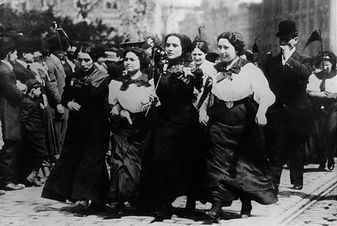 New York Mill Workers, circa 1910 New York Mill Workers, circa 1910 You'll never know what you don't know about a period until you're writing a book or making a movie about that era. Seriously. It's odd what you find yourself typing into the Google search bar. For instance, when I was writing Necessary Evil, I needed to know everything worth knowing about engagement rings during the Civil War. Were engagement rings used? If they were, did they have stones? Were they gold? Could we tell what they were just by looking at them? 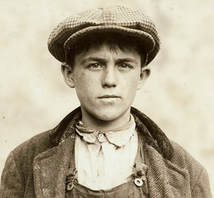 A potato eater A potato eater Similarly, with The Dinner Party, I've found myself researching things that I never would have dreamed of looking into. Here are a few instances: - If you were a jerk, would you call an Irishman a 'potato-eater' (Answer: yes.) - Do the Felsons own a mill or a factory? (Answer: both. It is a factory, but its powered by water, which means it would have commonly been referred to as a mill) - Would a husband lead a wife into the dining room for an elegant dinner party? (Answer: no, indeed! The very gauche idea!) - How close would an owner's/overseer's house be to the mill/factory he ran? (Answer: it varied, probably dictated by wealth, wife, and how smelly the factory/mill was.) - What would young radicals be ranting to their elders about? (Answer: pretty much the same thing they are ranting about now, only with fewer selfies.) 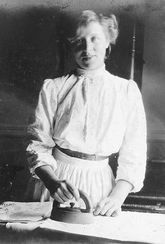 A career girl, circa 1906 A career girl, circa 1906 Fortunately, I really love this kind of thing. Research like this makes the past come alive in ways a text-book can't quite touch. Movie-making, too, allows us to remember that our ancestors were, at the end of the day, people just like you and me, trying to make a go of things and learning, working, laughing, fighting, and loving along the way. Now, if you'll excuse me, I have to find out whether lemons would have been available in New Hampshire in May of 1906... I don't know about you, but when I think about film making and directing, the first thing that comes to mind is an image like this: You know, being all cool. wearing black shirts and jeans, making big decisions, and, best of all,dramatically pointing beyond a glamorous person, like so: And, in truth, there is a lot of that fun stuff going on during the actual film shots. But what I always, always, always, ALWAYS forget it is how much work it takes to actually get to the set. You have to find (or write) the script, convince other people that it's awesome, recruit your cast, cast your crew, scout your locations, find/buy/build your props, costume your characters, storyboard, schedule, rehearse, re-story board when your location changes or your rehearsal changes the pacing of the scenes, arrange for make-up artists, hair-stylists, stuntmen, camera people, sound equipment, music accompaniment, artists for the credits, etc, etc. When you're doing an historical piece, like The Dinner Party, every task takes on second and third dimensions: do the locations look like the period or can they be made to? Will that couch work for 1906 or do I need to figure out how to get it out of the living room we'll be filming in? Is the prop period appropriate? Will the costume rental place allow me to plaster one of my actresses with eggs? Can you call an Irishman a potato-eater or is that not a thing? What sort of dress would a wife wear when instructing her maid in the middle of the day? What sort of jewelry would she wear? Would a New England family start a dinner gathering with an aperitif? Should the make-up artist use eye-liner on the ladies? What sort of hairstyle would the maid wear? And where on earth can I lay my hands on a western saddle? In short, in order to get to this: ...you have to get through this, first: Which isn't to say that prep-work isn't fun, because it can be a blast! (Especially rehearsals - you never know what's going to come up in those.) And it's not like I'm doing this alone, thank goodness (and thank Terry Traynor, also producing and running crew), because there are many many hands at work in all of this. Prep-work is where the magic really begins. As fun and cool as it is to be on set, making dramatic motions with your hands, it's what you did leading up to the shoot that really matters in whether your films is a fun, artistically fulfilling project or not.
Now, if you'll excuse me, there's a Film-Project To-Do list as long as my house waiting for my attention... 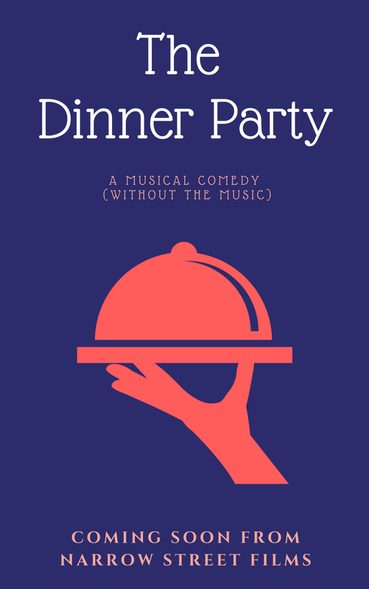 The script is written. The cast is assembled. The schedule is set. The crew is standing by. Tomorrow, we begin rehearsals for Narrow Street Films new movie, The Dinner Party: a musical comedy without the music set in the first decade of the 1900s. It's sure to be a blast. I'm taking the director's chair on this one, which is always a fun challenge. Right now, the producer and I are knee-deep in location scouting, costume conjuring, and the endless search for coffee and crew (any hairstylists wanna come and join us? Pretty please?). This isn't the first time we've done a historical movie (see The Man Who Wasn't Tex Magru) nor is it the first time I've directed (see Michael Lawrence: the Season of Darkness, coming soon to Amazon Video), but every movie, every script, is unique and present both problems to solve and opportunities to explore. You get to really flex your creative muscles working on projects like these: from losing locations (a problem we're currently trying to solve) to last minute casting changes (Michael Lawrence had a number of these!) to technical issues like lighting and sound, film making is both overwhelming and a rush, like a triathlon, where you're doing all three parts - swimming, cycling, running - at the same time... while juggling kitchen knives. But the absolute best part about film making is the people that you get to meet and work with along the way. I've met some of the best people working in Indie films: tough, smart, hard-working, team-players who can still laugh after long days on a hot set, trying to remember lines. Want to know a person, really know a person? Make a zero-budget movie with them. It's an eye-opening experience for sure. We haven't been on set since the wrapping of Chance back in 2017. Now we return, with a new script, a new plan, and a great cast. As the director, I don't know how everything is going to get done - I just have to make sure it does. But I can guarantee one thing: the film is going to be a blast, both to make and to watch. Stick around, guys. You won't want to miss this! 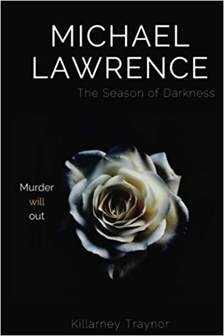 I've always been a bit of a DYI person. Not that I'm the type that makes my own cheese (though it's on my to-do list) or swaps out transmissions or anything intense like that. But when it comes to publishing and writing, I generally find myself trying to do everything. Sometimes I have great results. Sometimes it's more of a 'Lesson Learned' thing. Making my own cover for Michael Lawrence: the Season of Darkness was one of the latter. Don't get me wrong - I love this cover (the colors! the rose! the intrigue! Isn't it pretty?)! But over the course of the months, going to different live events, I got some feedback that made me realize that I have many things to learn about graphic design. Here are a few, which I now gladly share with you! 1: SIZING THE TYPE Intention: The Season of Darkness is intended as the start of a small series, so I made the main character's name big, as it's the title of the series. Result: Almost everyone has assumed that Michael Lawrence is the author. It's only when they squint that they see my name. Unlike Laura Holt's attempt to drum up business, putting a man's name on my book hasn't helped sales, alas! Conclusion: Make sure the author's name is large enough to see to deflect confusion. Also, when I re-do this cover, I'll probably be listing it as 'The Season of Darkness: a Michael Lawrence mystery'. 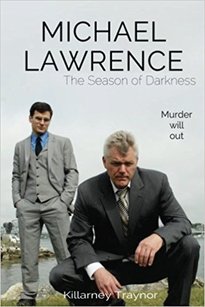 The Movie Tie-In Cover The Movie Tie-In Cover 2. THE ROSE Intention: In the language of flowers, the white rose stands for marriage (among other things) and I thought this rose, threatened by encroaching darkness and shadow, represented Michael's marriage problems pretty well. #deepermeaning, am I right? Result: Turns out, when most people see a rose, they think 'romance' - regardless of color (several would-be readers thought fantasy romance when they saw my rose). In contrast, the movie tie-in cover, with the two leads looking like British detectives having a stressful day, was instantly recognizable as what it was: an American murder mystery. Conclusion: Don't try to be too clever with your imagery. If the book looks like a romance novel or a gothic adventure, mystery enthusiasts will not bite. (Alas, my poor, misunderstood rose!) 3: THE TAG-LINE Intention: "Murder Will Out' is an idiom meaning 'murder cannot remain undetected'. I'd heard this phrase used over and over again in the mysteries I read and watched and it's the perfect tag for this particular case for reasons that I can't get into without spoilers. Plus, I knew it was English, which, as I was going for the feel of a British murder mystery, only added to its appeal. Result: Turns out, whatever books or movies I was enjoying aren't commonly known. This phrase, which is of unknown origin but sometimes attributed to Chaucer, made more people question me than the numbers 1 and 2 combined. No one knew what it meant. As a result, no one was intrigued by it. Conclusion: Run your tag line by a few people before you commit to them. It'll save you a lot of explanations in the long run. In Summary, creating your own cover is a ton of fun and well-worth the time and effort. But do yourself a favor: show it to a few of your friends, neighbors, co-workers, or innocent passersby before you commit. You may be saving yourself a lot of explanations in the future!
Every other Friday, I'll showcase a snippet from either a work in progress or an old manuscript, a new short story, or random poem or scene from a never-finished book. If you like what you read, be sure to leave a comment below! This snippet comes from a story I began back in 2011. Enjoy! 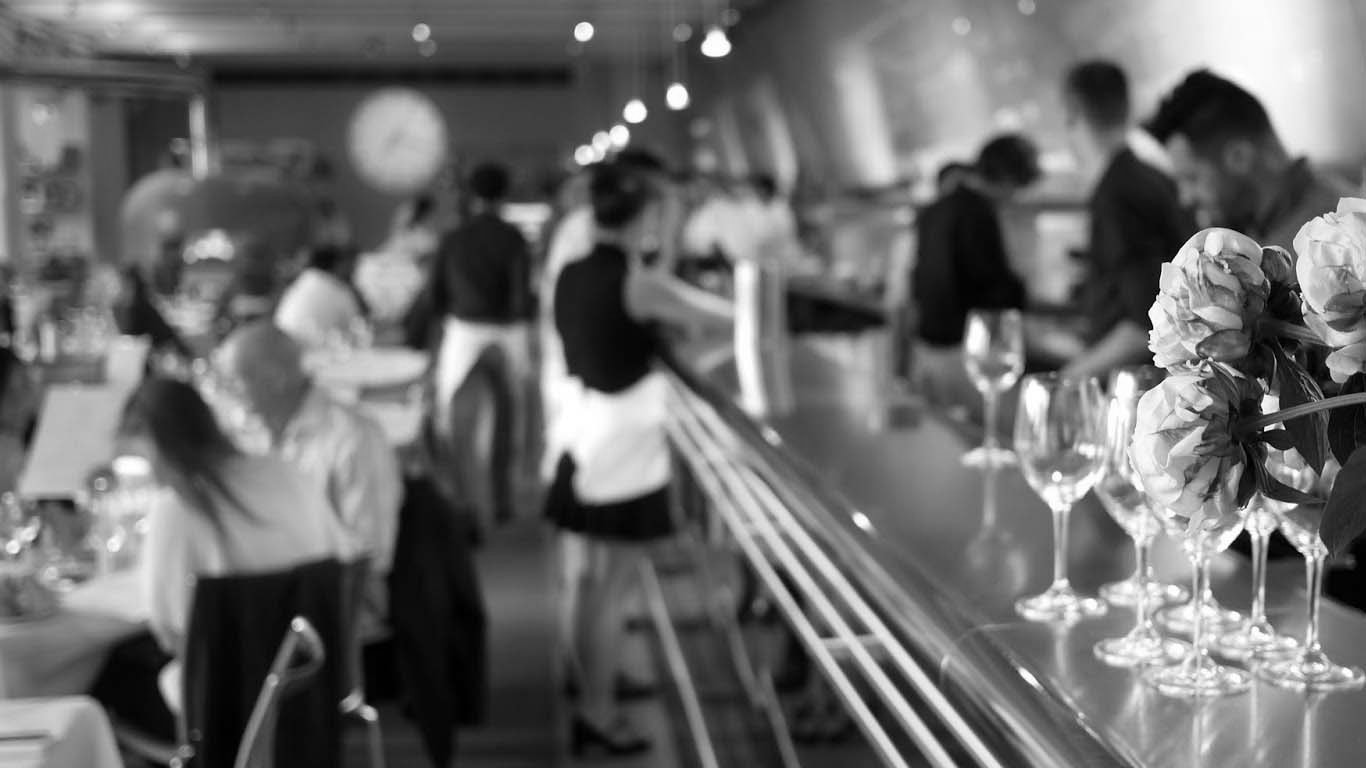 Because it was Friday, the restaurant was crowded. The bar was tight with sports enthusiasts who alternately cheered and jeered as their teams scored and lost ground. On the peripheral, all of the tables were taken, most packed to the limit and everyone seemed in a boisterous and jovial mood. The wait staff hustled and the sounds of furious activity emanated from the kitchen each time the doors swung open. The line of waiting patrons was stretched from the anxious hostess’ desk and into the tiny waiting area where it looped around and went out the door into the foyer and then onto the well-lit sidewalk. It was much quieter out here. People stood in little groups, hands in pockets, shuffling their feet, checking cell phones, and looking with envy at those who had the luxury of waiting inside. Had it been Nicole Carson’s choice tonight, she would have seen the line and driven right on past. She did not relish in the happy noise and over-warm friendly atmosphere. She much preferred the quiet of, say, her favorite Chinese food restaurant, or the River-Side Catch during the off hours. These places she could be sure of clean, healthy food, a quiet atmosphere, and a menu with which she was already familiar. And standing outside on a chilly March night in the New England weather was not her idea of a fun time, as healthful an activity as some may argue it was. But, as it was not her choice and as her sister, Kat, had faithfully promised to her that she would call ahead for seating, Nicole found herself pushing her way through the crowded waiting space to the hostess station. She heard snatches of conversation as she wound her way through the little groups. “… so then I said, ‘What the h--- do you mean, additional fees?’ And he was, like, ‘When you signed….” “…My feet are sooo tired. I worked 14 hours in the store today and that witch, Hazel…” “…and just when you thought the movie was over, right, bam! There was this explosion. I nearly died…” “…I mean, I’m more than due for the raise. I work harder than any one else and when that Deutsch thing was going down, I was the one who…” “We should have just gone across the street.” “But you hate Indian food.” “True, but I hate starving to death more…” “How many?” The harassed hostess with the deteriorating makeup pulled herself away from a lively discussion of table assignments with three disgruntled waitresses to face Nicole. She spoke the words with the lifeless intonation of a woman who had nothing left to live for, a living martyr who rather resented being plagued as she was. She took a clip-board with a frighteningly long list of names on it and waited. “Two.” “Name?” “Carson. We called ahead.” The hostess stopped writing and checked her list. “Katherine Carson?” “That’s it.” The hostess suppressed a grimace and viciously scribbled out the CARS that she had scrawled at the bottom of the list. She looked about and said, “I’m sorry, it’ll still be another few minutes.” “No problem.” The hostess turned away and Nicole had to say, “A buzzer?” Annoyed, the hostess found one and thrust it into her hands, then turned to play peacemaker. Nicole found herself being sucked back into the crowd. Hemmed in on all sides by bodies, voices, and odors, claustrophobia was not long in coming. She fought her way through and found herself outside again. This time, the crisp air was a blessing and she took a few, deep breaths to steady herself. Her lungs felt revived and her whole outlook brightened. After all, it wasn’t that cold out. The table wouldn’t be too long in coming, this restaurant chain had a very good reputation, and she would have a good conversation with her sister, Kat, whom she hadn’t seen in a week. Things would be good. I've decided to start a new feature for Fridays - Every other Friday, I'll showcase a snippet from either a work in progress or an old manuscript, a new short story, or random poem or scene from a never-finished book. If you like what you read, be sure to leave a comment below! Today's #FridayReads is from a work-in-progress tentatively called Jenny Goonight. It's a western about a travel-worn missionary woman who goes to visit her uncle, famed Civil War reporter Matthew Goodnight, in the town of Evanston, only to find her uncle embroiled in a power struggle with Varina Evans, wife of the town's founder. But Matthew isn't the man Jenny thought she knew and things go from bad to worse when a body turns up and Jenny finds herself accused of the killing. In this scene, Varina Evans hears some disturbing news and turns to her son, the quick tempered John Henry, for advice. 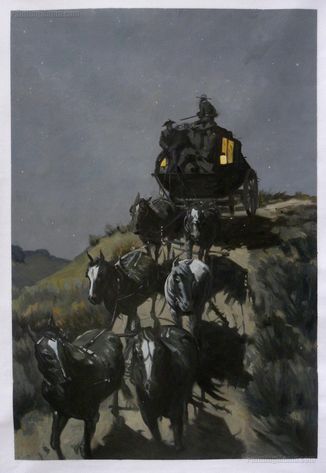 Chapter: Varina Lee Evans stood in a warm glow of the light, watching as the buckboard disappeared into the gathering darkness. Elizabeth and Josie Walsh, the wife and daughter of the general store owner, had come to pay a social call. At least, that was the reason Josie understood for their coming and it was the excuse that both Varina and Elizabeth would use, should anyone ask. Elizabeth had come for advice, advice that she could ask of neither the Pastor nor from her husband, Elliot, and she was not Catholic that she could confide in a priest. That left, very naturally to her mind, the Widow Evans. Varina Evans and Elizabeth Walsh were not what people might refer to as bosom friends. In fact, there was no one in town that could claim that relationship with Varina, unless it was her daughter-in-law, Helen. It was not close-friendship that brought Elizabeth to Varina, then, but a sort of fealty. The Evans were the founders of Evanston, the owners of the largest spread, and, according to most, the de facto rulers of the town, a story that Varina and both of her sons vehemently denied. But distance themselves as they might, people still thought of them as the chief family in town and when there was a civic problem, the Evans were usually the first turned to. Darkness closed around the buckboard and the rattling sound faded as the two women drove back to town. Varina thought, It wasn’t too long ago when such a short journey would have been too dangerous for two unarmed women. How fast things have changed. Now the dangers were different. From somewhere in the house, a door slammed heavily and she heard her son’s voice echoing through the rooms. John Henry had returned and from the sound of his voice, he’d seen the editorial, too. She left the relative peace of the darkened porch and went inside. The Evans mansion, as it was called by the locals, was an enormous, rambling structure that combined the practical needs of a ranch headquarters with the style of a Southern plantation house. The over-sized rooms were decorated with rich wall paper and plush carpeting, ornate candelabras, and heavy furniture. There was a piano in the parlor and a balcony outside her bedroom. Her deceased husband John had done his best, in a heavy-handed fashion, to provide her with a house that was like the one she’d grown up in. He'd succeeded only in reminding her how different life out west was from the one she’d known. John Henry was in the living room, standing before the fire place, rubbing his chin. He was dusty and grimy from the road, and the full day and he looked as though he’d love to put his fist through the wall. Trigger Olsen, one of their senior hands, was present too, running his hat through his hands. She stopped in the doorway and nodded to Trigger. “Good evening, Trigger,” she said. “You two are working late tonight.” “Yes, ma’am.” Trigger bobbed his head, glancing at John Henry as he did so. “We, uh, ran into some trouble in the north pasture.” John Henry looked sharply at him. “Well,” Varina said evenly, “no matter. We kept dinner warm for you. It’s waiting in the kitchen.” Trigger waited for John Henry’s nod before scampering off. He was too well acquainted with the Evans to want to be in the middle of a family discussion. When he was gone, Varina went and sat in the armchair, lowering herself carefully and smoothing her skirts as she did. John Henry kept his eyes on the fire place. The air chilled at night, so a small fire was always started at the end of the day. With Helen expecting in a few short weeks, the extra precaution was considered even more necessary. When John Henry didn’t speak, Varina did. “The north pasture?” she asked. John Henry seized the poker and stabbed at the logs. “Broken fence again,” he muttered. “We patched it. Thomas around?” “He’s upstairs, with Helen.” She waited another moment, then said, “I understand you paid a call on Matthew Goodnight this afternoon.” With a growl, John Henry threw the poker back into the stand and began to stride about the floor impatiently. “According to Josie Walsh, it didn’t go well,” Varina ventured. “Josie Walsh!” he said, with disdain. “What does she know about anything?” “She was under the impression that someone pulled a gun today, John Henry. That someone pulled a gun on you after you attacked Matthew Goodnight.” He stopped in front of her. “I couldn’t let him get away with printing that article,” he said. “Not when it’ll affect Thomas. You know it’ll hurt his chances in the election – it’ll hurt his chances with anything.” She looked up at him levelly. It was moments like these that he looked most like his father – a big man. Too big, she sometimes thought. “And do you think he’ll print a retraction now?” she asked, ice in her tone. He hesitated, then turned away, only just refraining from swearing. “We can’t just let him do this!” he muttered through gritted teeth and his fist came down on the mantelpiece, making the china dolls dance. “Something must be done!” Varina Evans waited a few moments. In dealing with John Henry, she found that some of the techniques she employed on her husband were most effective. No one would have accused the late John Thomas Evans of being a whipped man, but then few knew Varina very well. And though the son was very much like the father, there was one difference: John Henry was much more bullheaded than John and try as she might, she could only influence, not control. He is much more like me than his father in that respect, she thought. He’s his own man. I can only do so much with him. He is like his father – but he is not John. She waited until she was ready, then said, “Elizabeth Walsh was here today.” John Henry turned, frowning. She watched his hands flex. “What did she want?” he asked. Varina drew in a breath and looked up at him steadily. “She came to tell me what I already knew. You’re right, John Henry. We have got to do something about Matthew Goodnight.” LIKE WHAT YOU'VE READ? DROP ME A NOTE AND LET ME KNOW!

I've decided to start a new feature for Fridays - Every other Friday, I'll showcase a snippet from either a work in progress or an old manuscript, a new short story, or random poem or scene from a never-finished book. If you like what you read, be sure to leave a comment below!
Today's #FridayReads is from a work-in-progress tentatively called The Tour Guide. It's a romantic comedy about Gwen, a young woman who has never been to Ireland who is forced by circumstance to lead a tour group there. Naturally, all sorts of calamities and comedic problems ensue. In re-doing the manuscript, this scene, in which two 60+ travelers meet their tour guide for the first time, was cut for brevity, but I still rather like it. Enjoy! 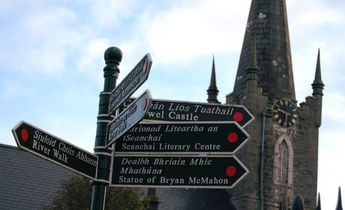
Deleted Scene from The Tour Guide, by Killarney Traynor
The tour guide from Chambers Adventure Tours was not, as Emily had supposed, a charming old Irish gentleman, but instead a polished, somewhat nervous young woman with blond hair and a Boston accent. “Welcome to Ireland!” the young woman said. “I hope you had a good flight!” “Cead mile failte!” Emily replied, holding out her hand to shake. The young tour guide’s mouth dropped open and for a moment, there was a very awkward pause, broken only when Emily spoke. “That means, ‘a hundred thousand greetings’,” she said kindly. “It’s an old Irish phrase I picked up somewhere.” The guide’s face cleared and she nodded in understanding. “Oh, yes, of course,” she said. “Well, the same back at you, I’m sure.” Emily gave Rose a look as though to say, What sort of a tour guide did they send us? As though in answer to the question, the young woman introduced herself as Gwen Chambers, took their names, and then gestured them over to a lounge area. “I’m afraid there is a bit of a wait before we get to our hotel,” she explained. “We’ve a few more planes to greet, but I think you’ll find this area comfortable.” Rose didn’t mind a break between bus and plane and at Emily’s suggestion they got coffee and bagels at one of the little cafes. “What kind of a tour guide did they give us that doesn’t even know that phrase?” Rose muttered as Emily was carefully counting out some Euros. “Even I know it from greeting cards.” Emily gave her a side long look as she handed the coins to the girl behind the counter. “You didn’t recognize her name?” “I don’t even remember her name – it’s too early in the morning.” “Gwen Chambers,” Emily said. “They didn’t just send us a tour guide on this tour – they sent us the boss’s daughter. Now, why do you suppose that is?” It was an interesting question and one that kept them occupied during the hour wait for their departure by bus. Three more planes arrived in that time and the little lounge was soon crowded with half-asleep Americans in t-shirts, dragging over-sized suitcases with Chambers’ luggage tags dangling from the handles. Eventually, Gwen came over, smiling brightly over her clip-board. “Well, if you are all ready,” she said. “Shall we go to our hotel?” No one objected and all filed after her, dragging bags and sipping from paper mugs. When they got outside, there was a bit of a hold up as Gwen searched for their bus among the dozens parked outside, but soon enough came trotting back to them, her smile firmly in place, her high-heel shoes clacking on the pavement. “Just a few more steps this ways,” she said brightly. “Just follow Tour Guide Barbie,” one of the men behind Rose muttered and immediately a woman protested, “Oh, Hal!” in an annoyed tone. The driver was a stocky, handsome man in a leather jacket. He stood by the door, helping people with the first step while Gwen ran back and forth among the line, checking and double checking to see if they’d forgotten anyone. Rose and Emily settled into one of the middle rows and Emily leaned over to whisper, “He’s a cute one, isn’t he?” “Who, the driver?” “Well, I wasn’t talking about Hal.” Emily looked over as Gwen, the tour guide, popped up in front to see if everyone was settled. “And she’s very pretty.” “Don’t you go match-making,” Rose warned. “It never works out.” “Can’t blame a girl for trying,” Emily said. “I just like seeing people happy. Anyway, there’s not much I can do for the pair of them, except sit back and watch the fireworks.” As she said this, the driver came in, brushing by Gwen as he slipped into his seat. When she turned to give him a cool stare, the man just smirked at her. “Oh yes,” Emily said with satisfaction. “This is going to be a fun trip.” Goodreads Book GiveawayTale Half Toldby Killarney TraynorGiveaway ends October 31, 2017. See the giveaway details at Goodreads. |
The BlogWelcome to Categories
All
|
Copyright © Killarney Traynor
All Rights Reserved.
No part of this website may be reproduced without
the Owner's express consent. [Backlinks allowed.]
All Rights Reserved.
No part of this website may be reproduced without
the Owner's express consent. [Backlinks allowed.]


